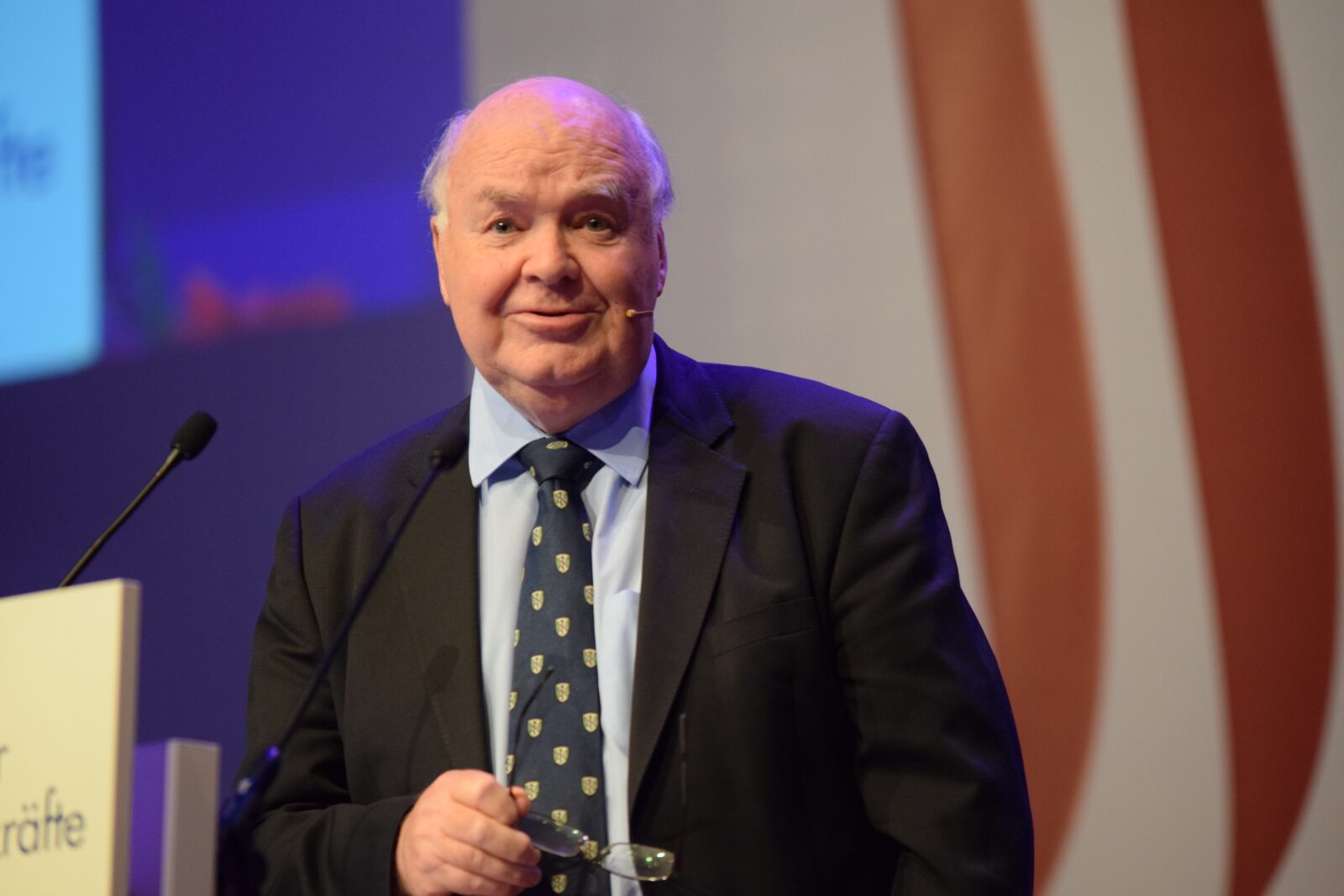


A Cosmos Charged With Meaning and Purpose

Against the Tide: John Lennox and Stephen Meyer

Casey Luskin and Adam Shapiro Debate Intelligent Design, Pt. 1
On today’s ID the Future, design theorist Casey Luskin, an editor of The Comprehensive Guide to Science and Faith, and science historian Adam Shapiro, co-author of Science and Religion: A Very Short Introduction, debate the meaning and prospects of intelligent design. Here in this first half of their conversation with host Justin Brierley of the Unbelievable? podcast, the focus is on how the term intelligent design is used, or misused, and its relationship to theological issues. The interview is used by permission of Justin Brierley.

Pat Flynn, Stephen Meyer, and the Return of the God Hypothesis, Pt. 2
On this ID the Future, Pat Flynn continues his conversation with bestselling author and philosopher of science Stephen C. Meyer, director of Discovery Institute’s Center for Science and Culture. The focus is Meyer’s new book, Return of the God Hypothesis, and here in the second and final part of their conversation, Flynn and Meyer discuss the beginning of the universe, the multiverse hypothesis, worldview bias, Bayesian probability calculus, methodological materialism, and specific scientific predictions that intelligent design thinking has motivated. This interview is presented here with permission of philosopher and YouTuber Pat Flynn.

Stephen Meyer Defends His New Book to Cosmologist Brian Keating, Pt. 2
Today’s ID the Future continues (by permission) the long-form conversation between Stephen Meyer, author of the newly released USA Today bestseller Return of the God Hypothesis, and UC-San Diego physicist Brian Keating. Here in part two the conversation turns to quantum cosmology, multiverse hypotheses, Stephen Hawking, and Hawking’s now-you-see-it/now-you-don’t use of imaginary time to deny a cosmic beginning. Meyer argues that Hawking’s imaginary-time trick doesn’t wash, there remains powerful evidence for a cosmic beginning, and that this beginning is best explained as the creation act of an intelligent, immaterial being. Also, Keating and Meyer tackle the question: Did Isaac Newton really blunder by invoking a God of the gaps to periodically tweak the solar system to smooth out perturbations? That is, was Newton led astray by his theism to opt for a science-stopping invocation of God to explain away a problem in his theory? Meyer’s PhD in the history and philosophy of science happens to be from Newton’s university, Cambridge, and Meyer says that he researched the issue in particular and no, the oft-repeated claim is a myth. What is true, Meyer says, is that Newton, Kepler, and other founders of modern science were inspired to search out and find the rational order hidden in nature because they were theists, convinced that nature was the work of a rational Creator. Check out Keating’s website here, and get a copy of Meyer’s new book here.

Stephen Meyer Defends His New Book to Cosmologist Brian Keating, Pt. 1
Today’s ID the Future features, by permission, the first part of a long-form conversation between Stephen Meyer, author of the newly released Return of the God Hypothesis, and Brian Keating, the Chancellor’s Distinguished Professor of Physics at the Center for Astrophysics & Space Sciences at the University of California, San Diego. Do the laws of cosmology, physics, and biology exhibit dispositive evidence of a cosmic designer? Do the Big Bang and fine tuning suggest a “Mind” behind it all? In the book and in this conversation Meyer argues yes. Keating tells what he likes about the new book and draws on his deep knowledge of cosmology to press Meyer with some great followup questions. Check out Keating’s website here, and learn more about Meyer’s new book here.

Michael Medved and Stephen Meyer on the Return of the God Hypothesis
Today’s ID the Future features, by permission, a recent conversation between radio show host Michael Medved and philosopher of science Stephen Meyer as they discuss Meyer’s new book, Return of the God Hypothesis. Listen in as Meyer, director of Discovery Institute’s Center for Science and Culture, provides a swift flyover of 500 years of scientific history, in which he traces the rise, fall, and rise again of a paradigm Meyer refers to as “the God hypothesis.” To learn more about Meyer’s new book and see the growing list of enthusiastic reviews from top scientists, go to ReturnoftheGodHypothesis.com.

John Lennox and Steve Meyer Against the Tide, Pt. 1
On this ID the Future, Stephen Meyer and Oxford University mathematician and thinker John Lennox begin a three-part conversation about Lennox’s upcoming documentary, Against the Tide: Finding God in an Age of Science. As Lennox explains, he grew up as the child of a uniquely non-sectarian Christian family in Northern Ireland, with parents who encouraged him to question broadly, read widely, and respect every person as a creature made in the image of God. He tells of his encounters with C. S. Lewis at Cambridge University, relates a humorous story in which atheist Peter Atkins gave him the title of one of his books, and describes his front-row seat as he watched the scientific atheism of the 1960s transform into the aggressive and contemptuous New Atheism of more recent years — a story that includes Lennox’s own debate with Richard Dawkins.

Nonsense of a High Order: The Confused and Illusory World of the Atheist
What is a rational response when you’re confronted with nonsense of a high order? On this episode of ID the Future, CSC fellow Paul Nelson interviews Rabbi Moshe Averick, who explains the rational course for countering the new atheists.
Read More ›